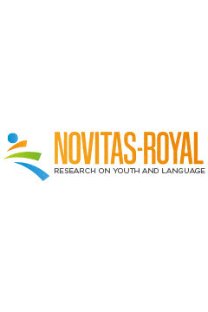Teacher Learning during Transition from Pre-service to Novice EFL Teacher: A Longitudinal Case Study
Hizmet Öncesinden Acemi Öğretmenliğe Geçiş Sürecinde Öğretmen Öğrenimi: Boylamsal Bir Vaka Çalışması
___
- Allwright, D., & Hanks, J. (2009). The developing language learner. Basingstoke: Palgrave Macmillan.
- Baecher, L. (2012). Feedback from the field: What novice pre K–12 ESL teachers want to tell TESOL teacher educators. TESOL Quarterly, 46(3), 578-588.
- Basturkmen, H. (2012). Review of research into the correspondence between language teachers' stated beliefs and practices. System, 40(2), 282-295.
- Borg, M. (2004). The apprenticeship of observation. ELT Journal, 58(3), 274-276.
- Borg, S. (2006). Teacher cognition and language education: research and practice. London: Continuum.
- Braun, V., & Clarke, V. (2006). Using thematic analysis in psychology. Qualitative Research in Psychology, 3(2), 77-101.
- Bulut, M. (2016). Pre-service EFL teacher learning during the practicum: A multiple case study in a context of systemic dissonance. (Unpublished PhD thesis), University of Leeds, Leeds, UK.
- Burns, A., Freeman, D., & Edwards, E. (2015). Theorizing and studying the languageteaching mind: Mapping research on language teacher cognition. The Modern Language Journal, 99(3), 585-601.
- Clarke, M. (2008). Language teacher identities: Co-constructing discourse and community. Clevedon, UK: Multilingual Matters.
- Cross, R. (2010). Language teaching as sociocultural activity: Rethinking language teacher practice. The Modern Language Journal, 94(3), 434-452.
- Denscombe, M. (2010). Ground rules for social research: Guidelines for good practice. Maidenhead: Open University Press.
- Dinçer, A. & Yeşilyurt, S. (2013). Pre-service English teachers’ beliefs on speaking skill based on motivational orientations. English Language Teaching, 6(7), 88-95.
- Erkmen, B. (2014). Novice EFL Teachers’ Beliefs about Teaching and Learning, and their Classroom Practices. Hacettepe Üniversitesi Eğitim Fakültesi Dergisi (H. U. Journal of Education), 29(1), 99-113.
- Faez, F., & Valeo, A. (2012). TESOL teacher education: Novice teachers' perceptions of their preparedness and efficacy in the classroom. TESOL Quarterly, 46(3), 450-471.
- Farrell, T. S. C. (2012). Novice-service language teacher development: Bridging the gap between preservice and in-service education and development. TESOL Quarterly, 46(3), 435-449.
- Farrell, T. S. C. (2016). From trainee to teacher: Reflective practice for novice teachers. London, UK: Equinox.
- Festinger, L. (1957). A theory of cognitive dissonance. California, CA: Stanford University Press.
- Flyvbjerg, B. (2006). Five misunderstandings about case-study research. Qualitative Inquiry, 12(2), 219-245.
- Johnson, K. E. (2009). Second language teacher education: A sociocultural perspective (1st ed.). New York ; London: Routledge.
- Johnson, K. E., & Golombek, P. R. (2011). Research on second language teacher education : a sociocultural perspective on professional development. London: Routledge.
- Kanno, Y., & Stuart, C. (2011). Learning to become a second language teacher: Identities-inpractice’. The Modern Language Journal, 95(2), 236-252.
- Karakaş, A. (2012). Evaluation of the English language teacher education program in Turkey. ELT Weekly, 4(15), 1-16.
- Kubanyiova, M. (2012). Teacher development in action: Understanding language teachers' conceptual change. Basingstoke: Palgrave Macmillan.
- Kubanyiova, M., & Feryok, A. (2015). Language teacher cognition in applied linguistics research: Revisiting the territory, redrawing the boundaries, reclaiming the relevance. The Modern Language Journal, 99(3), 435-449.
- Lave, J., & Wenger, E. (1991). Situated learning: Legitimate peripheral participation. Cambridge: Cambridge University Press.
- Liu, Y., & Fisher, L. (2006). The development patterns of modern foreign language student teachers’ conceptions of self and their explanations about change: Three cases. Teacher Development, 10(3), 343-360.
- Lortie, D. (1975). Schoolteacher: A sociological study. London: University of Chicago Press. Merriam, S. B. (2009). Qualitative research: A guide to design and implementation. San Francisco: Jossey-Bass.
- Patton, M. Q. (2002). Qualitative research and evaluation methods (3rd ed.). Thousand Oaks, CA: Sage Publications.
- Piaget, J. (2011). Origin of intelligence in the child: Jean Piaget selected works (Vol. 3): New York: NY, Routledge.
- Shin, S. (2012). “It cannot be done alone”: The socialization of novice English teachers in South Korea. TESOL Quarterly, 46(3), 542-567.
- Uzun, L. (2016). Evaluation of the latest English language teacher training programme in Turkey: Teacher trainees’ perspective. Cogent Education, 3(1), 1147115.
- Wedell, M. (2009). Planning for educational change: Putting people and their contexts first. London: Continuum.
- Yuan, R., & Lee, I. (2014). Pre-service teachers' changing beliefs in the teaching practicum: Three cases in an EFL context. System, 44, 1-12.
- ISSN: 1307-4733
- Yayın Aralığı: 2
- Başlangıç: 2007
- Yayıncı: -
Teacher Learning during Transition from Pre-service to Novice EFL Teacher: A Longitudinal Case Study
Yaygın Okumanın Sesbilimsel İşlemenin Gelişimi Üzerine Etkisi
A Display of Patterns of Change in Learners’ Motivation: Dynamics Perspective
ÖZGE SELÇUK, İsmail Hakkı ERTEN
Effects of CDA Instruction on EFL Analytical Reading Practices
Abduljalil Nasr HAZAEA, Ali Abbas ALZUBI
Yabancı Dil Öğrencilerinin Günlük İfadelerin Kullanımı Konusunda Görüsleri
